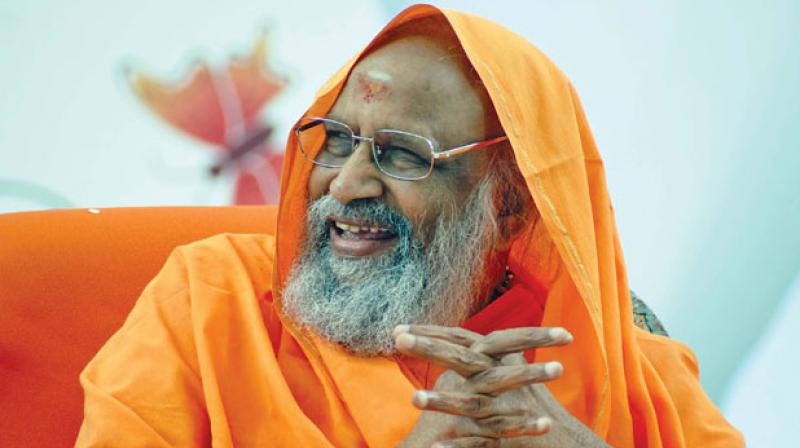Model Tamil Nadu village shows the way

Chennai: At a time when urban migration is hitting an all-time high in the country, a contrary scenario could be witnessed in a tiny hamlet in Tiruvarur district of Tamil Nadu.
Located on the banks of Chozha Choodamani, a tributary of the Cauvery river, Manjakkudi is like any other Indian village, predominantly depending on agriculture. Whatsets this village apart is the dedicated steps it has taken on the path of progress, breaking many taboos still common in rural society.
Women education and employment are no more unachievable tasks in the village. Manjakkudi has a population of over 1,500, but the floating population is more than 4,000 as students come in every day from more than 40 neighbouring villages. The rural set-up is visible only after school hours end in the evening.
The success stories in every field could be attributed to the deep rooted concept of integrated rural development inspired by the renowned philosopher, the late Swami Dayananda Saraswati at the village he came from.
The private and government aided educational institutions in Manjakkudi, developed by the disciples of Swami Dayananda Saraswati, provide education till PhD. The village has a Wipro back office which has provided employment to many educated youngsters.
M.R. Rajagopal, Wipro, Head, Manjakkudi said, “What is the need of migrating to the cities when your village has all the facilities?” A native of Manjakkudi, he was working in a private company in Bengaluru, before settling down in the village since 2002.
The facilities in the village include a 24-hour operational ambulance, educational institutions and community hall. These stem from the vision of Sheela Balaji, chairperson and managing director of AIM for Seva and the Trust.
The students from the Swami Dayananda Saraswati Educational Trust (SDET) are exposed to the state-of-the-art facilities, which is a far cry even in schools in the urban spectrum. From back-to-back cultural programmes to awareness sessions, the management led by Sheela Balaji leaves no stone unturned to empower the children.
“We expose students to many cultural activities. It is a perfect example of cross cultural exchange,” Sheela told DC. In one of the programmes, noted Kathak dancer Vishal Krishna demonstrated to the students the nuances of the dance form.
Recollecting the long journey, Sheela added, “There was no scope for higher education here, before 2001. While boys could go to the cities, girls were not sent out. The absence of educational institutions was thus a hindrance to girl education.”
The scenario is now changed. Manjakkudi has become an epicentre for education as children from all over the country study here. A group of 25 students from Lei Shyamshar cultural society of Meghalaya is studying here.
Wailad Nongtdu, guardian of one of the students said, “A majority of these children belong to a poor background, with their annual income not even touching '30,000. At SDET, the students are exposed to good facilities.”
More than 50 per cent of strength in the schools includes first generation students, whose parents are happy to see them educated in the village.
The free hostels set up by the AIM for Seva trust is a true life changer. Fisherman B. Devaraj, whose daughters studied in one of the SDET schools, said, “I had lost everything when the Tsunami hit our village in Velankanni. Thanks to the trust, my daughters availed free education and they stay here.”
The trust is also sensitising farmers about the necessity to cultivate organic food. Would not every Indian village become progressive if educated people think alike Dayananda Saraswati to give back something to their native village?

